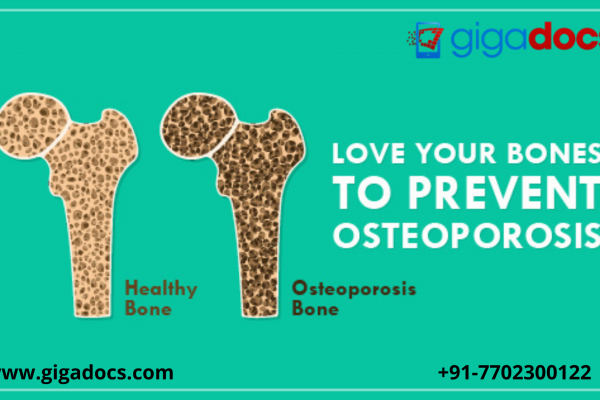The emotional, physical, and financial burden of long-term illness can significantly impact the health and quality of life of the elderly, their family, and caregivers. In India, about 80% of the seniors suffer from at least one chronic disease, while 68% suffer from two or more life-fatal diseases. Despite these statistics, seniors can improve their health and quality of life by managing existing health conditions and lowering their risk of developing new ones.
World Parents Day
The United Nations believes families are the foundation of a child’s upbringing and value systems. The role of a child gets changed with passing years as parents grow older, and the role of their offspring takes the responsibility of being caregivers. Building relationships takes time and effort. However, the parent-child relationship remains constant. They are based on trust, unconditional love, mutual respect, acceptance, and adaptability.
Parents’ Day celebrates all parents on the fourth Sunday of July. This Day honors our parents, no matter where they are. Parents have a significant influence on their children’s lives. From the moment we are born, our parents protect, teach, provide, and serve as role models for us.
Parents’ Day is an excellent opportunity for children to strengthen their bonds with their parents and demonstrate their love for them. Global Parents Day also raises awareness of the significance of quality parenting and family life in every child’s upbringing. On National Parents’ Day, let us look at the ten most common chronic diseases that affect seniors and know how their children who live far away can manage these diseases-
The Chronic Diseases and the % of the elderly affected-
| Chronic Diseases | % Of Elderly affected |
| High blood pressure (hypertension) | 58 |
| High cholesterol | 47 |
| Arthritis | 31 |
| Coronary heart disease | 29 |
| Diabetes | 27 |
| Chronic kidney disease (CKD) | 18 |
| Depression | 14 |
| Heart failure | 14 |
| Alzheimer’s disease and dementia | 11 |
| Chronic obstructive pulmonary disease (COPD) | 11 |
1. High Blood Pressure (Hypertension)
High blood pressure (also known as hypertension or HBP) is a severe condition that affects 58 percent of seniors. Hypertension causes blood vessel damage and raises the risk of severe and sometimes fatal conditions such as stroke and heart attack.
You can prevent or reduce high blood pressure by maintaining a healthy weight, reducing stress, limiting salt and alcohol intake, and regular physical activity, including walking or exercising.
2. High Cholesterol
According to recent studies, high cholesterol is present in 25-30% of the Indian urban and 15-20% of rural subjects. When the body has these excess bad fats, its arteries become clogged as time passes, resulting in heart disease. You can manage and prevent your parent’s high cholesterol levels by urging them to quit smoking, reducing alcohol consumption, regularly staying active and/or exercising, and keeping a healthy weight. Watch for what they eat; ensure they consume fewer saturated and trans fats.
3. Arthritis
The most common type of arthritis is osteoarthritis (OA). It is a joint disease in which the joint cartilage deteriorates over time, resulting in swelling and inflammation, which causes pain and stiffness. While some people may dismiss arthritis as a passing ailment, chronic arthritis pain can be so severe that seniors are forced to make unfavorable lifestyle changes. You can delay the onset of arthritis or manage symptoms by asking your parents to exercise regularly (ideally five times per week for 30 minutes). Other arthritis management techniques your parents can adopt include maintaining a healthy weight (even losing one kg can relieve four kgs of pressure on the knees, taking precautions to avoid joint injuries, and avoiding smoking.
4. Coronary Heart Disease
Coronary heart disease (also known as ischemic heart disease) develops when plaque accumulates in the arteries leading to the heart, which reduces blood flow to the heart and can lead to complications such as blood clots, angina, or a heart attack. To manage coronary heart disease, we advise your parents to limit their saturated and trans fats, sugar, and salt, have 7-8 hours of sleep every night, reduce stress, and keep themselves busy with regular physical activity. You should regularly get in touch with your doctor about managing major risk factors such as high cholesterol and blood pressure among the elderly.
5. Diabetes
For a diabetic person, the glucose level in their blood (blood sugar) is abnormally high, which can occur when the body does not produce enough insulin, and the glucose doesn’t reach the body’s cells. Instead, it accumulates in the blood, causing high blood sugar. High blood sugar levels harm the teeth, nerves, blood vessels, eyes, kidneys, nerves, heart, and gums, causing heart disease, nerve problems, gum infections, stroke, blindness, kidney disease, and amputation.
Diabetes patients are also more likely to develop heart disease or a stroke earlier. India is called the diabetes capital of the world. If your parents have pre-diabetes, we advise them to lose 5-7 percent of their body weight. To manage your parent’s risk of diabetes, make them exercise regularly to keep blood sugar levels in check and weight under control.
6. Chronic kidney disease (CKD)
Chronic kidney disease causes a gradual decline in kidney function over time, raising the risk of heart disease or kidney failure. You can prevent your parent’s risk of CKD by reducing the risk of diabetes and high blood pressure and keeping up with screenings for early detection and treatment.
7. Heart Failure
Heart failure occurs when the heart becomes weakened, loses its ability to pump efficiently, and cannot supply enough blood and oxygen to the entire body. Changes in the heart muscle can result in fatigue, lightheadedness, nausea, confusion, or decreased appetite.
Prevent or manage your parents’ risk of heart failure by lowering their coronary heart disease and hypertension risk. Ask them to exercise regularly, reduce salts and sugar, and stick to good fats in their diet.
8. Depression
Depression is a medical condition that can be treated and is not a normal part of aging. It can result in persistent sadness, emotional numbness, anxiety, sleep problems, concentration and memory issues, changes in appetite or weight, loss of interest in activities, and other symptoms.
Prevent or manage depression in your parents by asking and arranging for them to keep in touch with others and, promoting a nutritious diet, limiting their consumption of alcohol, highly processed foods, caffeine, and artificial sweeteners.
9. Alzheimer’s disease and dementia
Alzheimer’s disease is a type of dementia that accounts for 60-80% of all dementia cases. Dementia is a catch-all term for various cognitive symptoms and occurs when the brain is damaged by diseases such as Alzheimer’s, numerous minor strokes, or brain injuries. Alzheimer’s and other dementias cause memory loss, difficulty thinking or problem-solving, and other symptoms that interfere with daily life. Dementia is common among the elderly. Reduce your parent’s chances of developing dementia by regular exercise, maintaining social connections, remaining engaged in life, getting a good night’s sleep, and eating a nutritious diet.
10. Chronic obstructive pulmonary disease (COPD)
COPD is an umbrella term for emphysema and chronic bronchitis. It makes breathing difficult, resulting in shortness of breath, coughing, and chest tightness. Prevent COPD or manage symptoms by asking your parents to quit smoking. Reduce their dust exposure and stock influenza and pneumonia vaccines for emergencies.
How can Gigadocs help with Expert Consultation?
Book virtual or in-clinic appointments for your parents on the Gigadocs teleconsultation app and let expert medical consultants speak with them at a time comfortable to your parents. Download the Gigadocs app to book experts for High blood pressure (hypertension), High cholesterol, Arthritis, Coronary heart disease, Diabetes, Chronic kidney disease (CKD), Depression, Heart failure, Alzheimer’s disease and dementia, and Chronic obstructive pulmonary disease (COPD) and other chronic and non-chronic diseases. Download the Gigadocs app from-
To know more about how Gigadocs can help you to lead a healthy life, download the Gigadocs App from-
- IOS App – apple.co/2W2iG4V
- Android App – bit.ly/33AQoR




